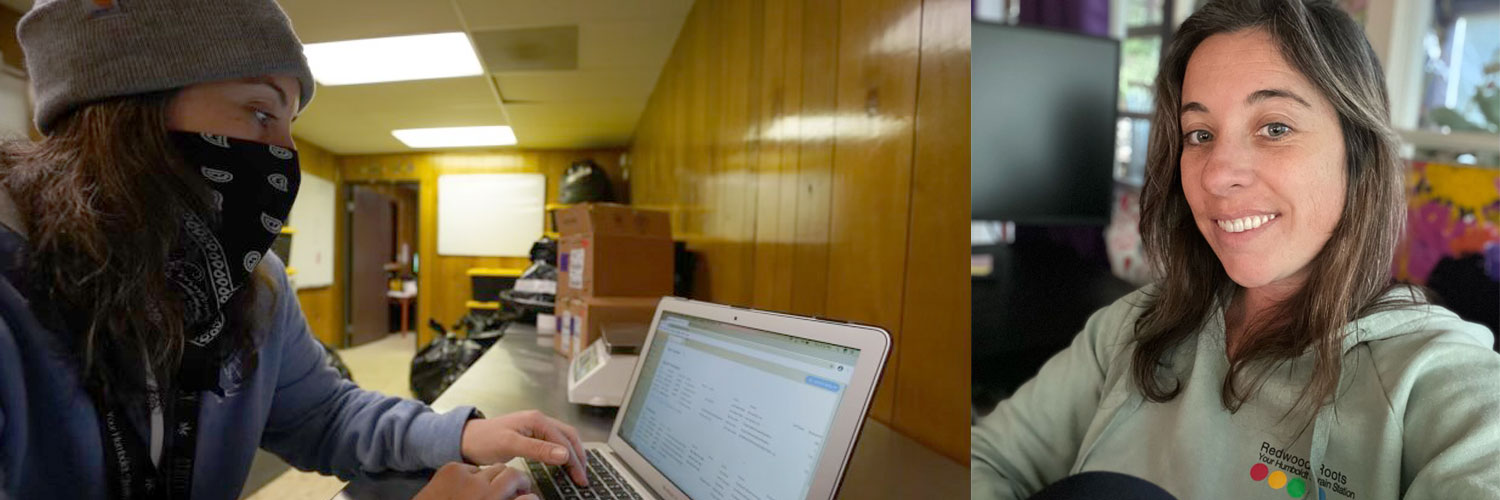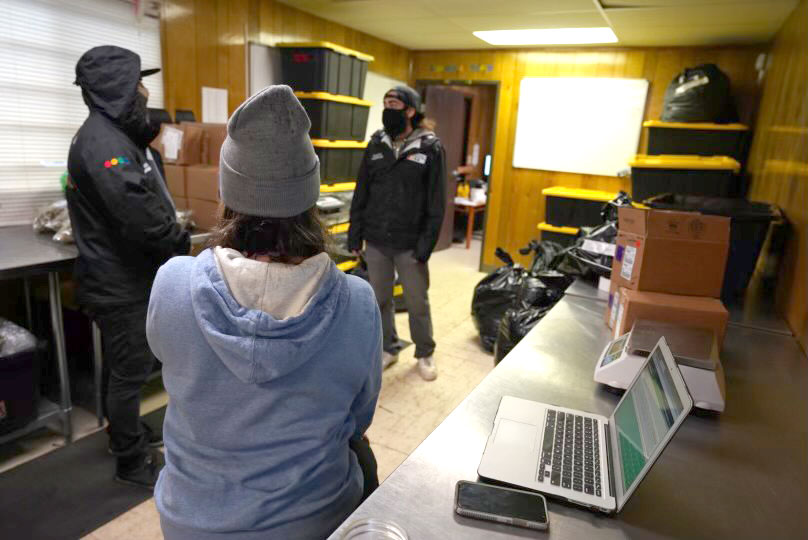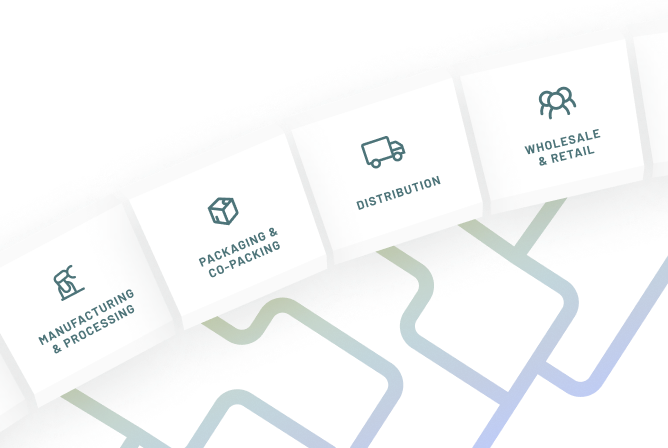
March 30, 2021
•Building Farmer Relationships the Redwood Roots Way
Without farmers we all would be hungry, naked, and sober. Farms are the cornerstone of many industries, and cannabis is no different. Because the relationship between farmers and their downstream partners is constantly evolving, it can be tricky for both parties to navigate. To learn more we caught up with Tiffany Smith, Sales Director at Redwood Roots, a cannabis distributor based in Humboldt County, CA. The company is entrenched in the local community and is known for strong ties to multigenerational farmers in the area. Smith has been a key player in helping maintain Redwood Roots’ relationships with growers and helping them adapt to the regulated market. She shares her thoughts on:
Successfully managing farmer relationships,
Challenges that farms are facing, and
What the industry can do to support them
Tell us about you and your role at Redwood Roots.
I worked with Chris Anderson, the Founder and CEO of Redwood Roots, when the company first started. After we worked through some of the initial setup, I phased out to start working on farms in the area and eventually took over management of a few that were entering the regulated market. I ended up returning to Redwood Roots as the Sales Director at the beginning of 2020. I work alongside Hugh Cole, our VP of Sales, and Roger Harrell, our COO, but I’m also our unofficial NorCal air traffic controller and “mother hen” – I oversee a bit in every department. My first step when coming on board was to help dial in all of the intake processes and procedures. We worked with Backbone to define our workflow, which actually enabled us to create a few new positions, including a role to manage our intake process.
How did you get into the industry?
I grew up in Indiana and actually worked as a paralegal for the Assistant City Attorney. I’ve always loved cannabis, which was risky in such a red state. Moving to California seemed like a natural next step, so I brought myself here, to Humboldt County, to be at the heart of the industry. I was a bartender for several years, and supplemented that by working on different farms in the area. It provided some great hands-on experience in the industry and helped me get to know a lot of the farmers I’d eventually be working with in my role at Redwood Roots. In 2016, I began to help cultivate for a couple of farms that were going legal. It offered me insight into the struggles associated with managing a farm and making that transition, which helps me relate to farmers on a more personal level.
What do you love about working in Cannabis?
The black market forced the government to regulate cannabis, which created a space for my job in the compliant market. It’s exciting to be given an opportunity to help pave the way forward for a new industry. As cannabis becomes more legal throughout the world, people are going to look to Humboldt County for direction. If we keep our standards high and put ourselves out there, then we can teach others to follow in our path. We can’t be afraid to do that. I’m excited to help create a successful, trusting pathway for our community and build the relationships to sustain the sale of local products. Together we can continue to educate the industry and put money back into our community so that it can continue to prosper for the next generation.
What’s your biggest pain point?
Farmers are nervous about entering the regulated market. There’s a lot of scrutiny when going legal, and they’re afraid of shining a light on what they’ve been cultivating for generations. They’ve been operating as outlaws for so long that many of them don’t have the business experience, resources, or relationships that they need to be successful. There aren’t many resources available to help farms navigate this process and get a grasp on the business side of things. I’d love to see more resources come to light – more CPAs, more Metrc guidance, more education on industry regulations. We need to have more advocates for the farmers to be their voice at the state level. Once they have more support, I think they’ll be more comfortable with operating in the regulated market. We’re also lacking a tool that gives farmers visibility into their product after it's been transferred from their farm. Having this downstream awareness would empower them to make decisions in real-time and give them the assurance of keeping eyes on their livelihood.
Another pain point I see in the industry is a lack of support from the BCC and other regulatory agencies. There are poorly written laws that don’t protect the farmers and unmanageable regulations that only apply to cannabis cultivation. Overtaxation and overregulation are causing the small, heritage farms to disappear. It’s very sad to watch.

Tell us about your relationship with farmers.
A lot of farms are leaning on distribution companies to help guide them, but some of these companies don’t necessarily have the farmers’ best interest at heart. I try to remember that we’re all farmers – I’m a farmer, too. I’m managing my farm and experiencing the same thing as them. We have to look out for the farms, because in the end they’re what’s providing us with a market. A lot of farmers come to me for advice on pricing and what’s selling, or to discuss offers they’ve received, new products, or what to plant next year. I try to be as transparent as possible and use my insight into the market to help set them up for success. I’m also involved at a more strategic level, which includes helping them plan for when to sell throughout the year. Every year I focus on calling all of our farms before the holidays. December can be a hard month financially, and I want to understand where they’re at with their farms and in their lives so that I know how to best support them.
How has that relationship changed over the years?
The dynamic has changed because some farmers are now operating more openly by embracing branding and putting their names on their products. They don’t need to hide in the hills or be secretive about what they do for a living anymore. My focus has been on helping them become more public and find their voice in the regulated market. Having people that they trust, that they’ve known forever, guiding them through the process makes it easier for those farmers to put themselves on there. I want Redwood Roots to be that kind of resource for them.
Can you give us an example of the type of information you’re communicating to farmers?
We discuss any potential issues with the product, such as how it might be impacted by the smoke from all the fires in California recently. I try to be very clear and transparent, which includes talking about what problems might arise, how they could affect the price, and what that means in terms of the transaction. If we bring in a batch that’s inconsistent or compromised – smoky, dry, powder molded – the intake team or I will call the farm upon receipt to talk about it. I don’t want it to be a problem when I take that product to a buyer and coming up with a solution upfront prevents any headaches or surprises later on. It’s important to maintain a clear channel of communication with the farmers. We’re working with their livelihood, and I respect that and want to make sure they’re included in any decisions that could impact the final outcome.
How do you approach making inroads with a new farm?
There have been a lot of new farms popping up. People from outside the area, or even different states, have purchased land up here to get into the business. When I meet a new farmer, I give them the rundown of Redwood Roots – who we are, what we do, how we got started. I’m very transparent about what we stand for and our goals as a company. I never want them to feel pressured to work with us. My priority is connecting with them as a human being and getting them the information they need to make an educated decision. The bottom line is that we work for them. If they want $5 more per pound than what we think we can get, then we’re going to go find them a buyer that will pay that.
Our company is very new, very boot-strapped, and always evolving. We are constantly restructuring and it’s important to us to own both our successes and our pitfalls so that we can create the best company to support our community. The farmers that we work with should always be refining their processes, as well.
Any advice you want to share?
My biggest piece of advice for farmers and the companies they work with is to not be afraid. When it comes to Metrc, a lot of farmers are worried about doing it wrong and getting in trouble. There’s a misconception that Metrc is a regulatory agency, but they’re not – the CFDA and BCC are. Metrc works for the farmers too and should be leveraged as a resource without fear of ending up on someone’s radar. The BCC will get involved with any wrongdoings, but If we’re uneasy in our approach towards compliance, then we’ll miss out on the growth and other good things that could be happening if we weren’t afraid to put ourselves out there. I’d love to see the confidence levels go up. I think a big part of that is just education, with an emphasis on sales strategy, learning the market, and understanding the competition. We need to equip farmers with the resources they need and support them as they continue to find their footing in the regulated market.



